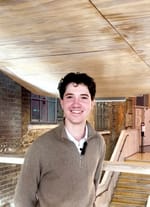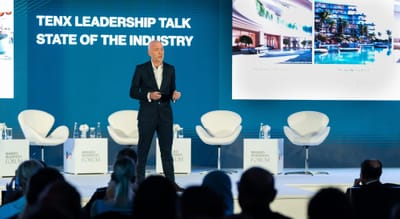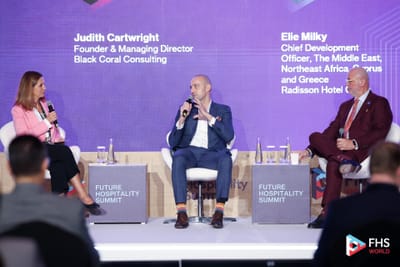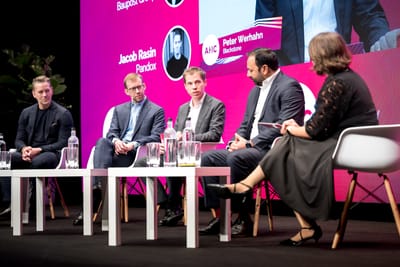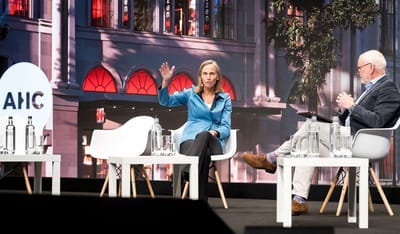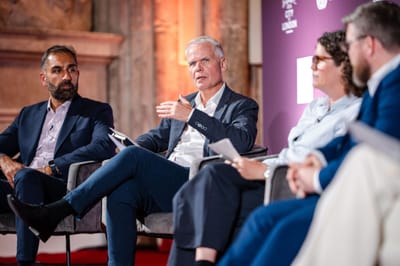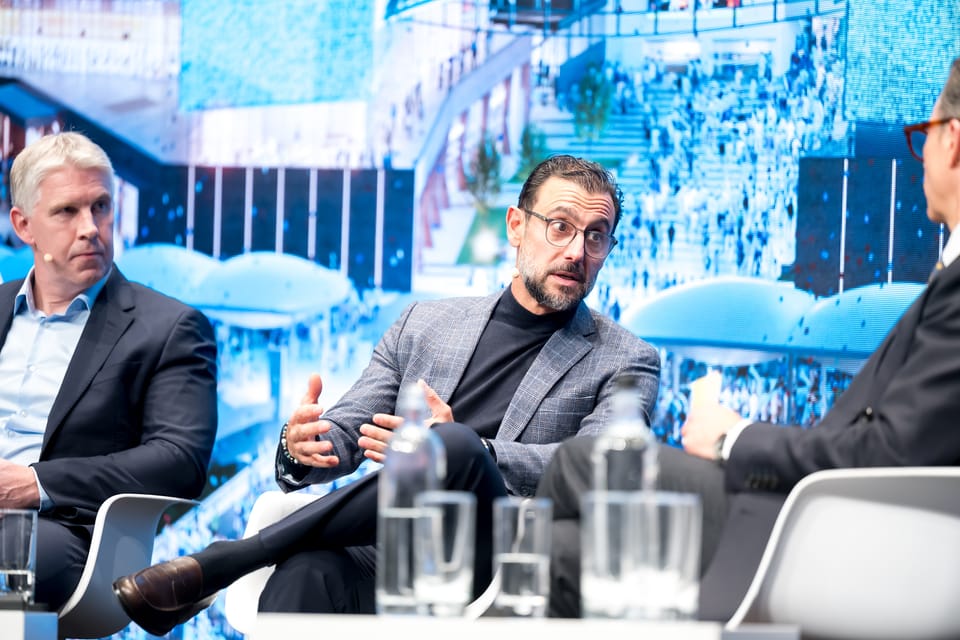
Speakers: Elie Younes (Global Chief Development Officer, Radisson Hotel Group), Danny Wilson (Managing Director, Manchester City Operations, City Football Group), chaired by James Chappell (Global Business Director, Horwath HTL).
Manchester’s Etihad Campus is becoming a seven-day destination. The Medlock, a 401-key Radisson Blu opening in late 2026, sits at the centre of a £300m expansion alongside Co-op Live and new public realm, illustrating how hospitality can convert stadium energy into sustained demand and local growth.
From stadium to year-round destination
Wilson placed the scheme in two decades of context. The 2002 Commonwealth Games catalysed East Manchester’s regeneration, the club moved from Maine Road in 2003, then invested steadily: training campus, stand expansions, fan zones and, most recently, Co-op Live, the UK’s largest indoor arena on the campus. Co-op Live now programs more than 120 nights a year, which materially increases non-matchday footfall within walking distance of the stadium.
The hotel is designed to capture and extend that demand. The Medlock will sit within the Etihad entertainment district, with direct access to meeting and events capacity at the stadium, and with guests able to experience a roof walk, a museum and a new retail and F&B offer as the campus build-out completes.
“With Co-op Live programming 120 to 150 events a year, it made sense to connect a hotel into the campus and use that energy on arena days and beyond.” Danny Wilson
Brand restraint, broader reach
Tempting as it might be to wrap everything in sky-blue, Wilson was explicit about positioning. “We intentionally did not go down the route of a Manchester City-themed hotel,” he said. Matchday passion will live in the stadium, the museum and the club store. The hotel will stay brand-agnostic so it can welcome fans of other teams, arena audiences, families, conference guests and international visitors without tribal frictions.
Younes called that restraint “one of the smartest things” on the project. Focus on what you do best, then “bring the experts” for the rest. The partnership design reflects that logic: City curates the wider destination, Radisson anchors the lodging brand and distribution, and Valor runs day-to-day operations.
Collaboration over corporate dogma
If there was a thesis statement from Younes, it was mindset over manual.
“When you do these projects you need an entrepreneurial mindset… leave the corporate nonsense at home and apply common sense.” Operators that insist on rigid rules in complex mixed-use settings underperform. Those that co-design programming, circulation and back-of-house with the venue owner, the arena operator and the F&B partners tend to win.
He framed hotel-led regeneration differently in mature cities. In emerging markets, a single hotel can act as the civic living room. In the UK, the hotel must plug into a bigger flywheel: sport, music, conferencing, retail and public realm. Integration beats isolation.
Why franchise can beat management in mixed-use
Radisson’s venue-adjacent UK deals skew franchise rather than management. The reason is operational, not ideological. A franchise lets a single local leadership platform coordinate stadium, arena and hotel execution while the brand provides standards and demand generation. In highly peaky, multi-stakeholder environments, fewer operating silos can reduce decision latency by a meaningful margin. That aligns with City’s selection criteria: flexibility, cultural fit and a partner ready to learn with them on the journey.
Planning, phasing and patience
No one pretended this is an overnight switch. Younes described it as “shifting the economic gravity” of a city toward a new pole, which takes time, trust and consistent programming. The stadium’s North Stand expansion is phased to deliver capacity and premium spaces first, with the broader hotel, workspace and public realm completing later. Official club communications anticipate the stand opening in the 2025–26 season, with the hotel and public realm by late 2026. The district plan includes a sky bar with pitch views, a covered fan zone, and a roof walk experience, all designed to make the Etihad a seven-day destination.
People strategy, not just property strategy
For Wilson, the regeneration lens is local first. The club is building pathways for East Manchester communities into construction, hospitality and event roles as the destination scales from 25 to 30 home games to 365 trading days. He highlighted a joint effort with arena partners to internalise more F&B work, reduce reliance on agencies, and create predictable shifts and longer-term careers across stadium, training facility, museum and hotel.
“You can build the most beautiful facilities in the world, but people make the difference to the experience.” Danny Wilson
The demand story only becomes a regeneration story if residents share in the upside.
F&B: art, not afterthought
An audience question on food and beverage drew one of the day’s bluntest answers. Younes admitted many hotel operators are “not as good” as specialist F&B groups. Stadium districts require both: dependable volume for matchdays and arena nights, and curated concepts that feel “authentically Mancunian” the rest of the week. Wilson pointed to Michelin-level collaborations in premium areas and partnerships with independents for character and relevance. The hotel’s own restaurants will be part of that broader campus mix rather than a siloed, all-day default.
The Medlock in numbers
- 401 keys, joining the Radisson Blu family
- Operated by Valor Hospitality
- Part of a £300 million Etihad Campus build-out that includes new hospitality, retail and public realm
- Target opening late 2026
- Amenities planned to integrate with the stadium: meetings and events via the Etihad, roof walk, museum experience, sky bar, covered fan zone and expanded F&B offer
Why this matters for regional cities
The panel framed Manchester as a template rather than an outlier. Large-scale, hospitality-led districts can diversify a city’s visitor economy and extend dwell time. They also attract higher-margin events that smaller venues cannot accommodate. Co-op Live’s early programming cadence demonstrates how arenas push repeat visitation, then the hotel, museum and F&B keep that footfall local for longer.
Key takeaways
- This is a demand integrator, not a bolt-on: the hotel is engineered to capture arena and match spikes, then trade on everyday attractions such as the museum and fan zone.
- Neutral branding widens the TAM: separating club identity from hotel positioning broadens appeal on the 300 non-match days that matter most to the P&L.
- Franchise suits complex districts: one local execution platform can coordinate stakeholders faster, with brand standards and loyalty still in place.
- Phasing matters: stand capacity arrives first in 2025–26, the hotel and public realm land in 2026, which staggers risk and lets the district learn in live operation.
- Regeneration equals jobs: internalised F&B and multi-venue staffing pathways convert footfall into household income, which is the durable dividend.
Become a subscriber receive the latest updates in your inbox.

